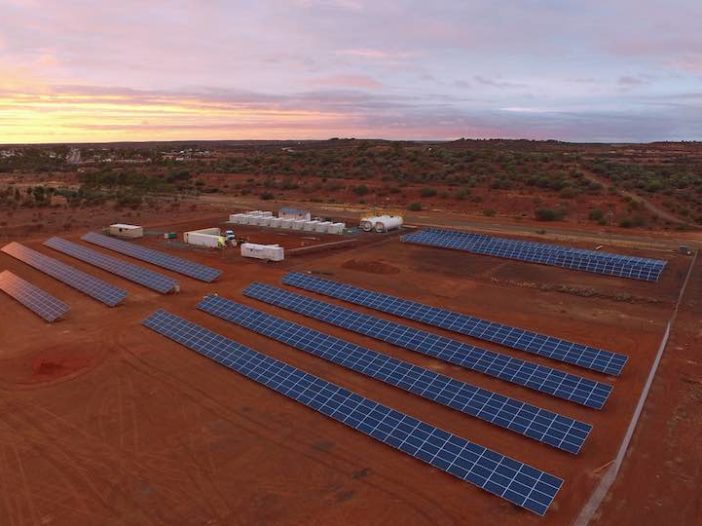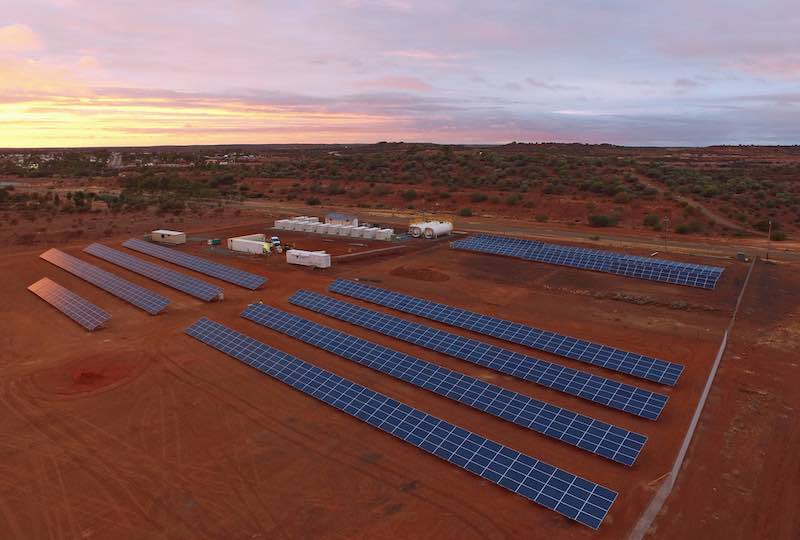
A 450kW solar farm built to augment a costly diesel power station that powers the Western Australian town of Meekatharra, has “exceeded all expectations ” – even without battery storage, Horizon Power has said.
As we have reported, the state-owned utility that covers all but the south-west corner of the country’s biggest state has long supported a mind-boggling fossil fuel subsidy, that guarantees its 50,000 customers pay no more than the 26c/kWh charged in Perth.
In the case of Meekatharra – a gold town in Western Australia’s mid-west – every customer has been subsidised by roughly $3,900 a year, to cover the cost of generation from the diesel-fuelled, 1.8MW Meekatharra Power Station.
The addition of solar – 100kW at first, and ultimately 450kW – over the course of 2017, however, has immediately cut costs for the state, and cut the use of diesel by around 20 per cent.
As Horizon explained it this week, the solar solution came about when Contract Power Australia, who commissioned the diesel power station in 2014, proposed installing an PV farm adjacent to the diesel plant, and the two parties share the reduced fuel costs.
The solar augmentation was funded and built CPA’s related business Hybrid Systems Australia (HSA) and CPA.
The solar array also uses CSIRO Cloud Predictive technology, to ensure the reliable and efficient incorporation of solar into the network is maintained.
The result, said Horizon Power’s general manager of generation and retail, Darren Hill, has “exceeded expectations” and bolstered confidence in the technology to achieve high renewable penetration levels with no requirement for energy storage.
“The power station has achieved instantaneous power penetration in excess of 80 per cent without a battery,” Hill said in a statement on Tuesday.
“Up to 20 per cent of Meekatharra’s daily electricity energy requirement can be provided from the solar farm.
“Overall this project has been very successful. Since its commissioning, there has not been any outages or interruptions attributed to the solar augmentation.”
Hill said reductions in the cost of power produced by the hybrid system would not flow through to customers, given the saving was essentially a reduction in that nearly $4,000 a head subsidy.
“The flow on benefits for the state have been a modest reduction in power costs as well as reduced emissions,” he said.
“This project has quietly gone about its business and delivered a successful outcome, demonstrating that Horizon Power and independent power producers can work together for win-win solutions.”

Sophie is editor of One Step Off The Grid and deputy editor of its sister site, Renew Economy. Sophie has been writing about clean energy for more than a decade.




